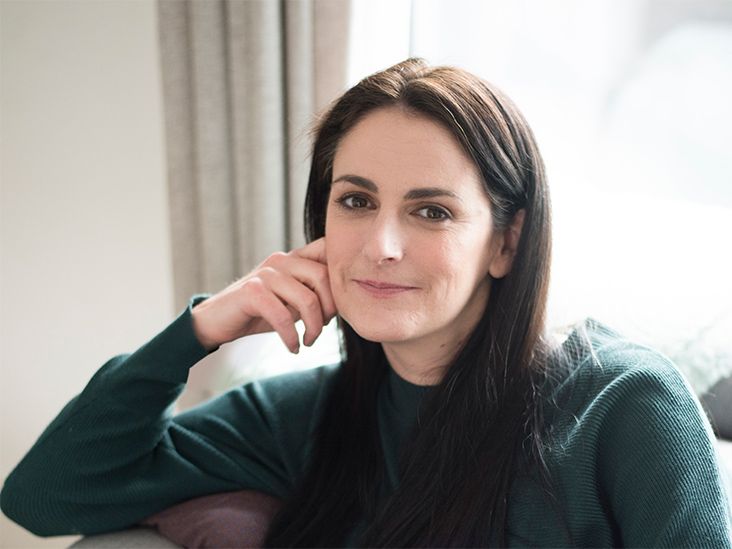Hidradenitis suppurativa (HS) and polycystic ovary syndrome (PCOS) are distinct conditions that can be linked. However, evidence establishing a relationship between the two remains limited.
HS is a chronic, inflammatory skin condition that causes painful lumps and abscesses under the skin. It is also known as acne inversa, but this article refers to the condition as HS.
PCOS is a hormonal condition affecting females of a reproductive age. It causes several symptoms, including irregular periods, cystic ovaries, and weight gain, especially around the belly.
HS and PCOS are two separate conditions, but it’s possible to have both.
HS is characterized by chronic inflammation, leading to boil-like nodules under your skin. These often develop into skin sores and may cause significant scarring.
PCOS refers to a set of symptoms that can affect people assigned female at birth. These symptoms result from an imbalance in sex hormones, including unusually high levels of androgens.
Ovaries produce multiple types of sex hormones, including estrogen and androgens. Androgens are sometimes known as male hormones because male bodies tend to produce more androgens than females. While everyone needs certain levels of androgens for optimal health, too much can cause health challenges.
Changes in how your body produces and responds to insulin may also contribute to symptoms of PCOS.
A 2018 study of 22,990 females with HS found that 9% of them also had PCOS, compared with less than 3% of the general population.
A
More research is necessary to learn why people with HS have an increased risk of PCOS.
Some people with HS show signs of elevated androgens, which may help account for the increased risk of PCOS. However, studies have not consistently linked HS to elevated androgens. Being above a moderate weight raises the risk of both conditions.
Experts believe that HS develops when abnormal hair follicles become blocked and burst. Most cases of PCOS develop when the ovaries produce
More research is needed to learn why these things happen. Multiple factors likely play a role, including:
- genetic factors
- hormonal factors
- environmental factors
Researchers are continuing to identify and study genes that might affect the risk of HS and PCOS.
HS mainly affects your skin, and PCOS can affect multiple parts of your body.
Potential symptoms of HS include:
- hard lumps or nodules under your skin
- tunnel-like wounds under your skin, known as sinus tracts
- pimple- or boil-like sores on your skin
- abscesses that leak blood and pus
- open wounds that won’t heal
- scarring
Potential signs and symptoms of PCOS include:
- menstrual irregularities, such as:
- no menstrual periods
- skipped menstrual periods
- unusually heavy menstrual periods
- menstruation without ovulation
- abnormal growths on one or both of your ovaries
- excess hair growth on your face or body
- obesity, weight gain, or difficulty losing weight
- dark skin patches
- oily skin
- acne
- infertility
There’s no cure for HS or
Your primary care doctor may prescribe treatment themselves or refer you to a specialist, such as a dermatologist for HS and a gynecologist or endocrinologist for PCOS.
Your recommended treatment will depend on your specific symptoms. Potential treatments for HS include:
- lifestyle modifications, such as changes to your:
- skin care routine
- clothing choices
- exercise habits
- smoking habits
- diet
- oral or injectable medication, such as:
- antibiotics
- corticosteroids
- immunosuppressants
- anti-androgenic hormone therapy
- retinoids
- tumor necrosis alpha (TNF-a) inhibitors
- light or laser therapy
- laser hair removal
- surgery
- topical treatments
Potential treatments for PCOS include:
- lifestyle modifications, such as changes to your:
- diet
- exercise habits
- smoking habits
- skin care routine
- hair removal practices
- oral, injectable, or topical medications, such as:
- oral birth control
- anti-androgen hormone therapy
- insulin-sensitizing agents
- metformin
- acne medication
PCOS can make it
If HS or PCOS is affecting your mental health, your doctor may also refer you to a mental health professional who can help you manage the emotional and social effects of these conditions. You might also find it useful to join a support group for people with HS or PCOS.
People assigned female at birth who have HS have an increased risk of PCOS, but more research is necessary to understand why.
If you suspect you may have one or both conditions, talk with your doctor. Depending on your specific symptoms, they may prescribe a combination of lifestyle changes, medication, and other treatments. Getting treatment may help limit symptoms, reduce your risk of complications, and improve your quality of life.
Your doctor may refer you to a mental health professional who can help you cope with the emotional and social challenges of living with these chronic conditions.






